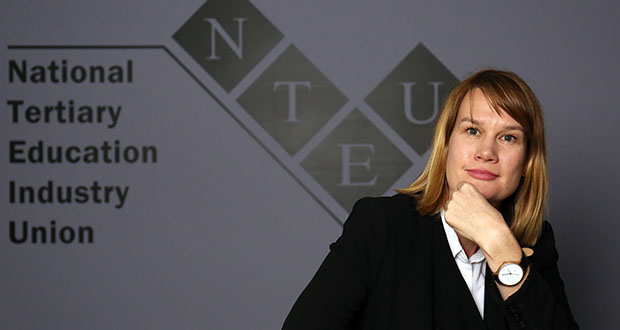The Ramsay Centre’s Bachelor of Arts in Western Civilisation and associated double degree will commence in 2020 at the University of Wollongong, despite the university’s Academic Senate disagreeing with the decision.
At its meeting last Friday, the University of Wollongong Council gave the Western civilisation programs the seal of approval as it was satisfied with the quality of the degree, confident in the rigour of academic assessment, and happy with its compliance with the Australian Qualifications Framework.
However, the National Tertiary Education Union attacked the university’s process for approving the Ramsay degrees.
“This decision is another example of the university not following its normal procedures in approving new courses,” NTEU national president Dr Alison Barnes said today.
“It’s the reason that NTEU initiated court action against the university in the first place.”
The union is suing the university and its vice-chancellor, Professor Paul Wellings, in the Supreme Court of NSW, over their decision to “fast-track approval for the Ramsay Centre degrees”.
“The NTEU’s case centres around the university’s bypassing of the normal academic governance processes. Universities’ internal academic governance processes play a vital role in quality control and are fundamental to ensuring academic integrity and quality,” Barnes said.
“The university’s latest step is again another example of the university not following its normal processes, at the expense of the academic governance. The NTEU is again disappointed at UOW’s disregard for its academic staff and the broader university community.
“We will consider the impact on the NTEU’s legal case and decide our next steps as soon as we are in a position to do so.”
UOW chancellor Jillian Broadbent said “prevailing circumstances” meant that the “council had used its legislative powers to specifically approve this degree”.
While she has full respect for the university’s academic process, and in particular the role of the Academic Senate, Broadbent said certainty was required in preparing to begin teaching the degrees in 2020.
“By approving the degree, the council has acted in the best interests of the university. It will enable progress to continue despite any continuing legal challenge to the vice-chancellor’s earlier approval decision,” Broadbent said.
“The council remains prepared to continue with its legal defence of the vice-chancellor’s exercise of his delegated authority if required, but we hope that will not be necessary given the changed circumstances.”
Do you have an idea for a story?Email [email protected]
 Campus Review The latest in higher education news
Campus Review The latest in higher education news

